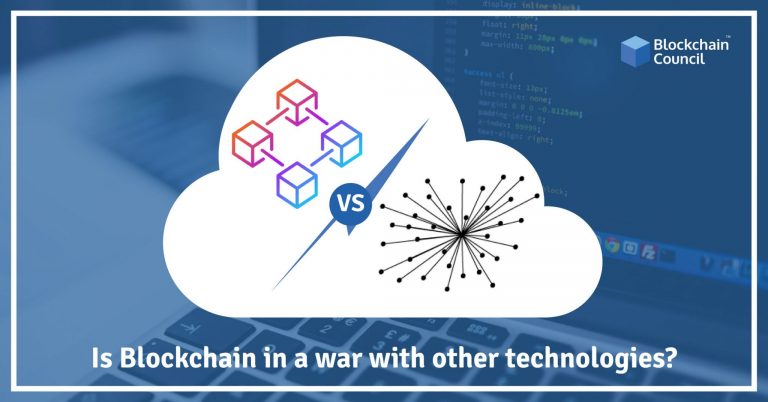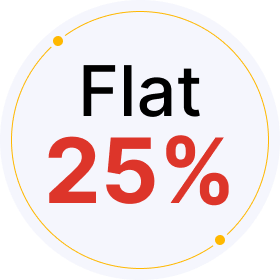
- Toshendra Kumar Sharma
- August 24, 2019
Blockchain has grabbed the attention of a majority of the industrial verticals out there. Not only is it transforming the way a business functions, but it is also enabling innovation at a rapid pace. More and more companies are increasingly adopting blockchain for their businesses as blockchain is one technology which makes it more feasible for mainstream implementation. Decentralization, the crux of blockchain, has certainly changed the way we perceive problems and solve them. It means that data in a blockchain is managed without a centralized authority and this is what makes a blockchain more secure.
So, how can businesses succeed by implementing blockchain? The answer to this question will depend on how enterprises approach it. The best solution is to identify the right business models and implement them correctly. To get a better idea, let us first understand what a blockchain model is.
A Simple Understanding Of Blockchain
A blockchain can be defined as a time-stamped series of immutable (tamper-proof) record of data which is managed by a cluster of computers. These computers are not owned by a single entity. A blockchain is a decentralized digital ledger where data is stored in the form of blocks. These blocks are secured using cryptographic principles. The three pillars of a blockchain are decentralization, transparency, and immutability.
What Is A Blockchain Business Model?
A business model refers to a fancy term which is used to describe a plan or strategy of a company to generate profit through the sale of a product or service. It outlines the plans of a company to produce a product or service and market it. Each company will create business models which suit their business needs. A blockchain business model is decentralized, allows peer-to-peer transactions, and helps create a trusted network. Blockchain-based business models use tokens to make profits. Anyone who helps blockchain reach consensus will receive a token which carries some value and this value depends on the market conditions. Examples of tokens are Bitcoins and Ethers.
Need For A Blockchain Business Model
The decentralized nature of a blockchain alters the way a business functions in areas such as the flow of transactions, change of entities, profits, and in ensuring that growth is maintained during the change. Blockchain business models help improve businesses and benefit end-users. A good business model must focus on investors and not entrepreneurs. This way, projects in the market will focus on utility rather than value. Blockchain business ideas must function effectively both at the macro and micro level, thereby benefiting both employees and end-users.
Traditional Business Model
There are still many businesses today which follow the traditional business model. Before understanding the different blockchain business models available today, let us first understand the traditional business model. A traditional business model provides goods or services and earns profits from them. Consumers purchase the product or service at the prescribed rate. This rate is set accordingly and consists of details about the wages and other expenses incurred by the business while providing the product or service. They use a centralized model and the model differs with every business. The four traditional business models are manufacturer, distributor, retailer, and franchise.
Best blockchain Models
1. Blockchain As A Service (BaaS)
It is the most popular business model. It involves providing businesses with an ecosystem to help manage their blockchain system. This ecosystem will allow companies to experiment, test, and conduct research. End-users such as established businesses or startups need not worry about how a blockchain works and need not set it up before working on it. BaaS allows companies to focus on their development cycle as it eradicates the need for hardware. Bitcoin and Ethereum can also be served as a service. One such example is EBaaS (Ethereum Blockchain as a Service) which is managed and provided by Microsoft through its collaboration with ConsenSys. Some of the common examples of BaaS are Amazon (AWS), IBM (BlueMix), and Microsoft (Azure).
2. Token Economy- Utility Token Business Model
Utility is the total satisfaction received from consuming goods or services. The utility token model involves driving the functionality in business through the use of tokens. Best examples of this model are Ripple and Stellar. The banks which are a part of their network will be able to facilitate fund transfer using XRP (Ripple) or XLM (Stellar) tokens. These are utility tokens which power the network and facilitate the network activities. The top three valuable variables a token must have are features, proper role, and purpose. Businesses hold a part of the utility tokens and release the rest for network functionality. They make profits when the value of utility tokens change.
3. Blockchain-Based Software Products
To adopt blockchain sooner, businesses need to purchase a blockchain solution and integrate it into their system. This will help create blockchain companies which come up with a solution and then sell them to bigger companies. Proving blockchain technology to organizations can be extremely profitable as, apart from getting a reasonable payment upfront, they will also need to provide support post-implementation. The best example of this is MediaChain blockchain being sold to Spotify. This was done to solve royalty issues prevalent in the music industry. Another reason for acquiring this business model is the lack of talent in the market, as companies do not want to go through the tedious process of acquiring talent.
4. P2P Blockchain Business Model
This offers a peer-to-peer powered business. This helps end-users interact directly with each other. This business model can be monetized in many ways, such as BaaS, tokens, or transaction fees. Filecoin and IPFS are the popular systems which use this model. These provide a platform for data storage and sharing.
5. Blockchain Professional Services
These services are provided to startups and other businesses by leading expert development companies to get them started with blockchain. For example, if a company requires someone to build their custom business project, they can hire companies like IBM, Deloitte, or others to finish the project for them. Instead of investing in hardware, software, or team building, it involves directly taking the services of companies which are experts in blockchain development. Smaller players are also a part of this market. Other forms of blockchain professional services are auditing a business, developing legal papers, and consulting.
Conclusion
Choosing the right business model solely depends on the nature of the business and what the business wants to do. There is no particular rule or condition for how a business model must function. It can be a combination of different ideas and enterprises can customize it according to the needs of their businesses.


































































 Guides
Guides News
News Blockchain
Blockchain Cryptocurrency
& Digital Assets
Cryptocurrency
& Digital Assets Web3
Web3 Metaverse & NFTs
Metaverse & NFTs
